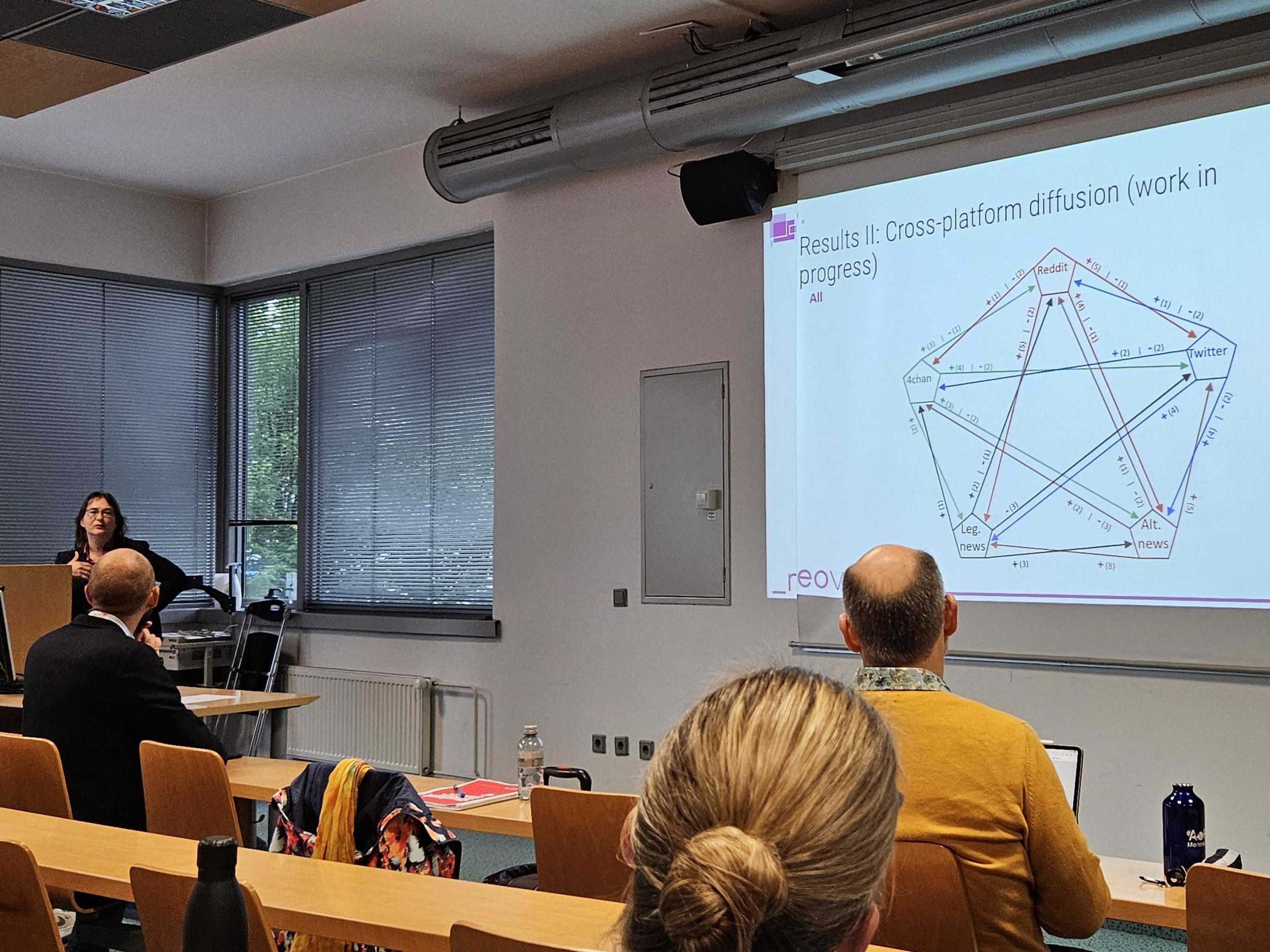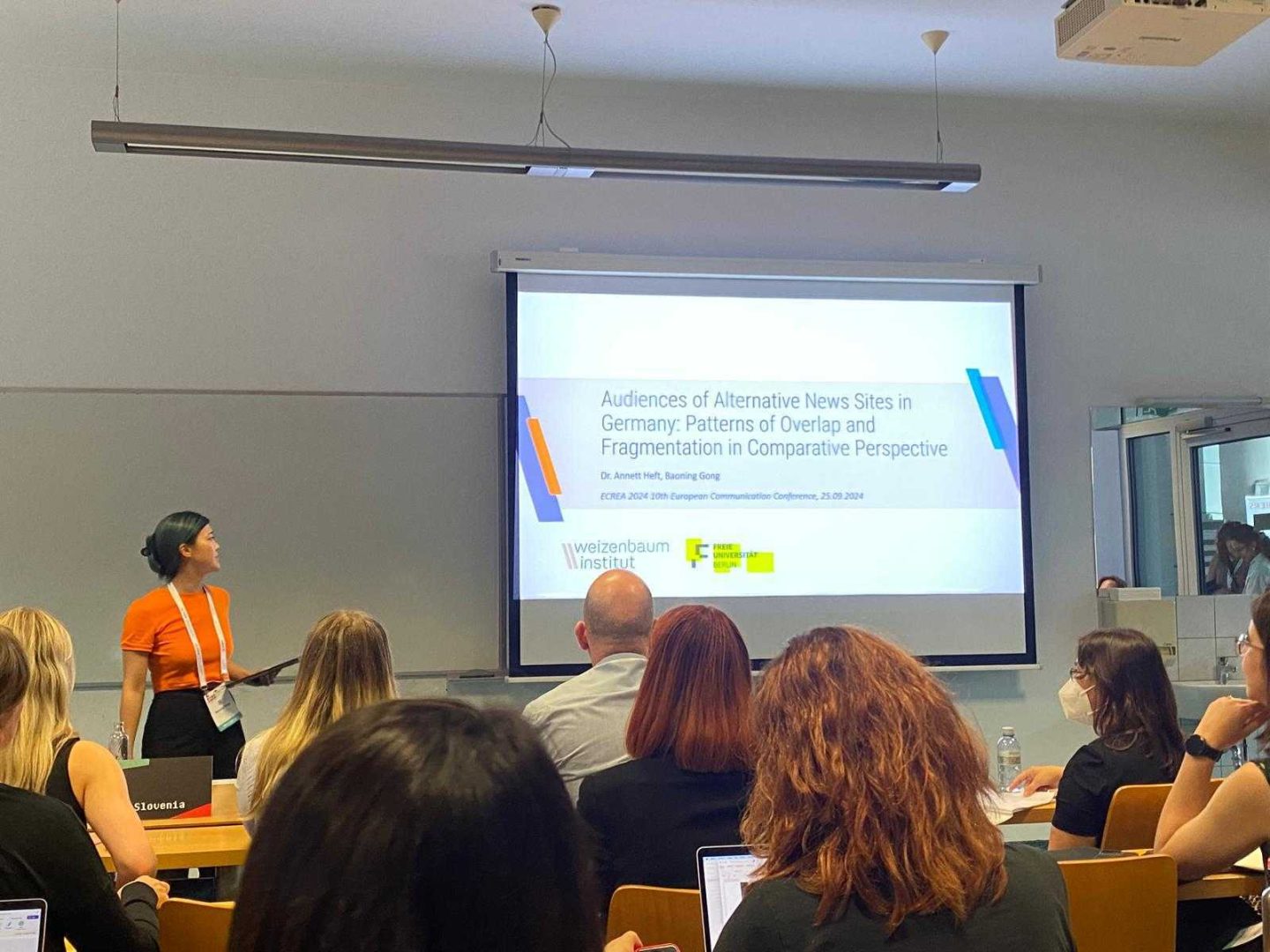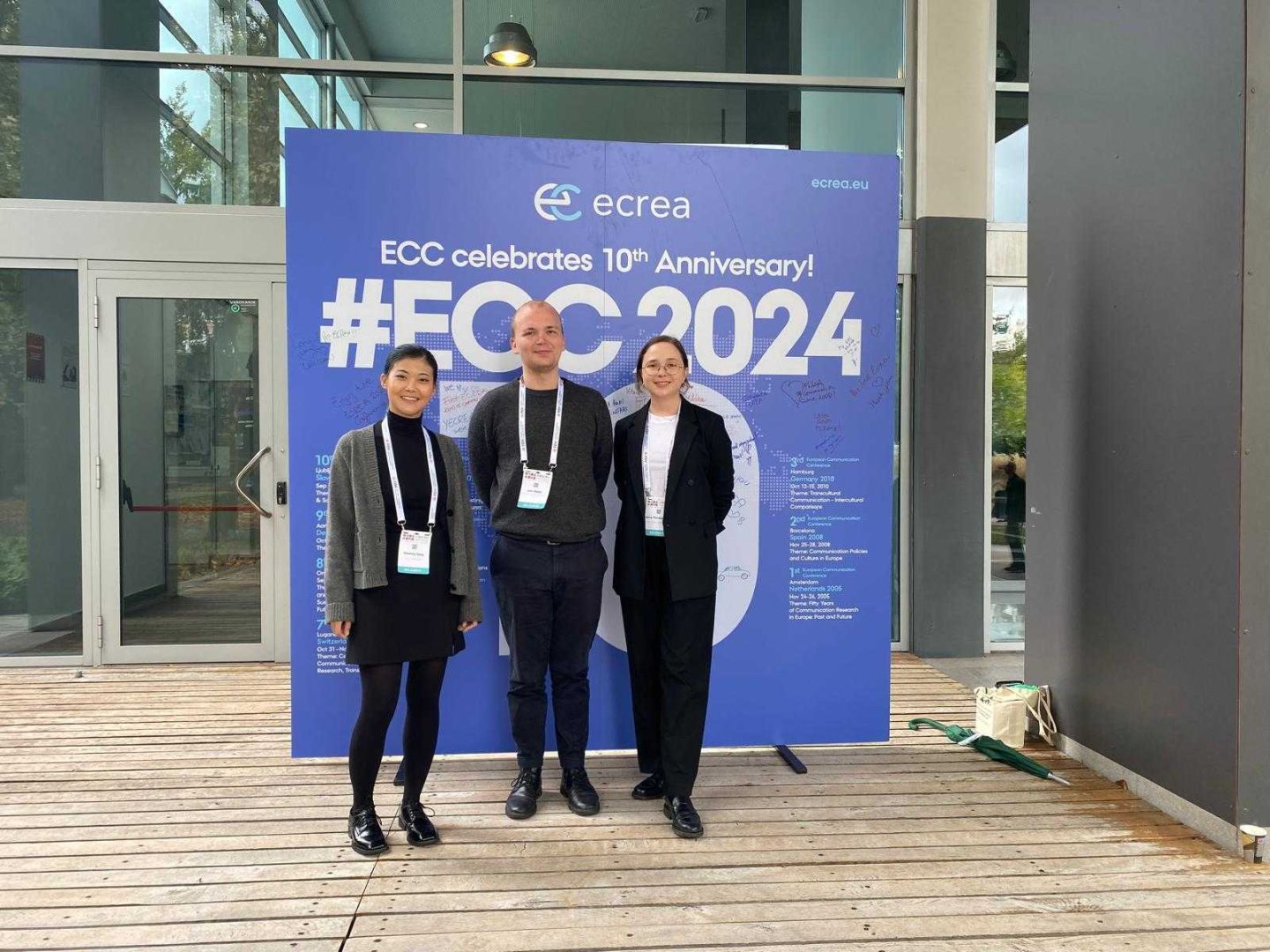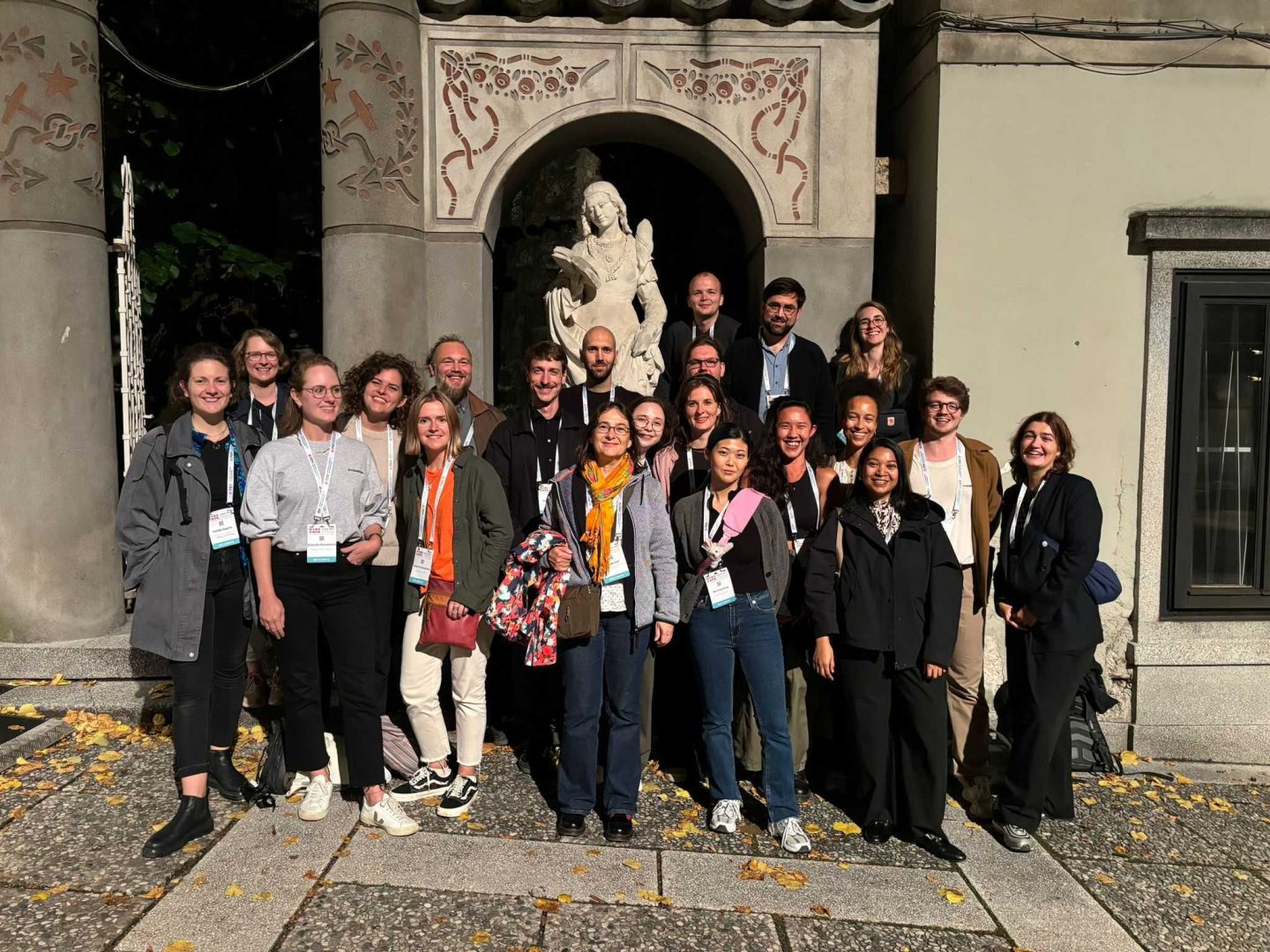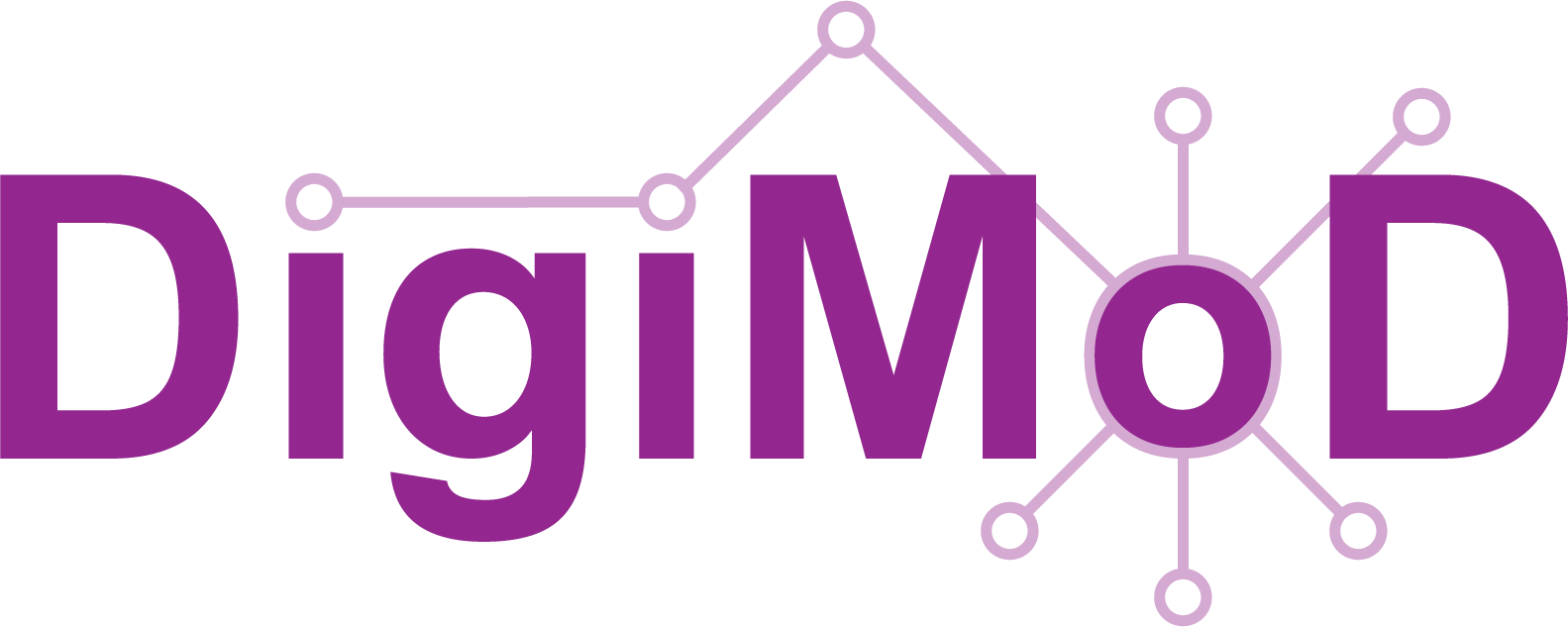From September 24th until the 27th the DigiMoD-Team attended the 10th European Communication Conference (ECREA 2024) at the University of Ljubljana, Slovenia.
Under the theme ‘Communication & social (dis)order’ the ECC 2024 conference invited the participants to rethink the state of communication in light of ongoing political, economic, environmental, health, and technological disruptions, reflecting on their (dys)functional unpredictability and lasting societal impact. Attendees were also reminded that, although the rapid pace and scale of current communicative and social changes may create a sense of unprecedented transformation—this feeling is not unique to our time.
In this light, our team members, and colleagues, presented the following work at the ECREA 2024 event:
Xixuan Zhang (Freie Universität/Weizenbaum Institute) presented the paper “New platform, new me? Cross-platform variation and convergence of styles and functions of conspiracy-related communication” co-authored with Dr. Annett Heft and Dr. Kilian Buehling (both Freie Universität/Weizenbaum Institute). Their study examines how user cultures on different platforms, including 4chan, Twitter, and alternative media, shape the communication style of conspiracy-related content over time, revealing platform-specific differences in word choice and some convergence of communication styles, particularly between 4chan and Twitter.
Dr. Annett Heft (Freie Universität/Weizenbaum Institute) presented her work “The spreading of hate. Diffusion dynamics of conspiracy theories across platforms” written with Dr. Kilian Buehling and Xixuan Zhang (both Freie Universität/Weizenbaum Institute) on the cross-platform diffusion of far-right conspiracy theories about the “New World Order” and “Great Replacement/White Genocide.” Their research displays that each platform, including 4chan, Reddit, Twitter, alternative media, and legacy media, play distinct roles in fostering, brokering, and amplifying conspirational content from 2011 to 2021.
Baoning Gong (Freie Universität/Weizenbaum Institute) presented her work “Audiences of alternative news sites in Germany – Patterns of overlap and fragmentation in comparative perspective” co-authored with Dr. Annett Heft (Freie Universität/Weizenbaum Institute). Their study investigates audience fragmentation and overlap in Germany’s alternative media landscape, focusing on how users of various right-leaning, conspiracy-focused, pro-Russian, and professional-topic-driven outlets engage with legacy media, and how frequent versus occasional users differ in their media consumption patterns.
Christian Strippel (Weizenbaum Institute) presented his work “The diversity of alternative media users: Socio-demographics, political attitudes, and social media use” co-authored with Baoning Gong, Dr. Annett Heft (both Freie Universität/Weizenbaum Institute), Martha Stolze, Dr. Elizaveta Kuzmetsova, Prof. Dr. Joakob Ohme, Victoria Vziatysheva, and Dr. Felix Gaisbauer (all Weizenbaum Institute). Their study, based on a survey of over 2,000 alternative media users in Germany, reveals that around 17% of the population consumes alternative media, with users more likely to be male, younger, and educated, yet spanning all demographic groups; these users are more politically engaged but also more disillusioned with democratic institutions, and they heavily rely on social media, particularly Facebook and Instagram, for news consumption and interaction.
Dr. Kilian Buehling (Freie Universität/Weizenbaum Institute) presented the paper „Accessing online communication (dis)order: The COVID-19 protest Telegram dataset 2020–2022” co-authored with Heidi Schulze (Ludwig Maximilian University of Munich) and Maximilian Zehring (Ilmenau University of Technology). Their research presents a broad dataset of over 5.5 million public posts from 1,001 German-language Telegram channels linked to the Querdenken anti-COVID-19 protest movement from 2020 to 2022, offering valuable insights into the platform’s role in protest mobilization and disinformation spread during societal crises while highlighting the challenges of social media data publication and ethical considerations in communication research.
Dr. Annett Heft (Freie Universität/Weizenbaum Institute) also was invited to chair the panel on “News in politics”.
We thank the University of Ljubljana for organizing the ECREA 2024, the enriching panels, and networking opportunities.
